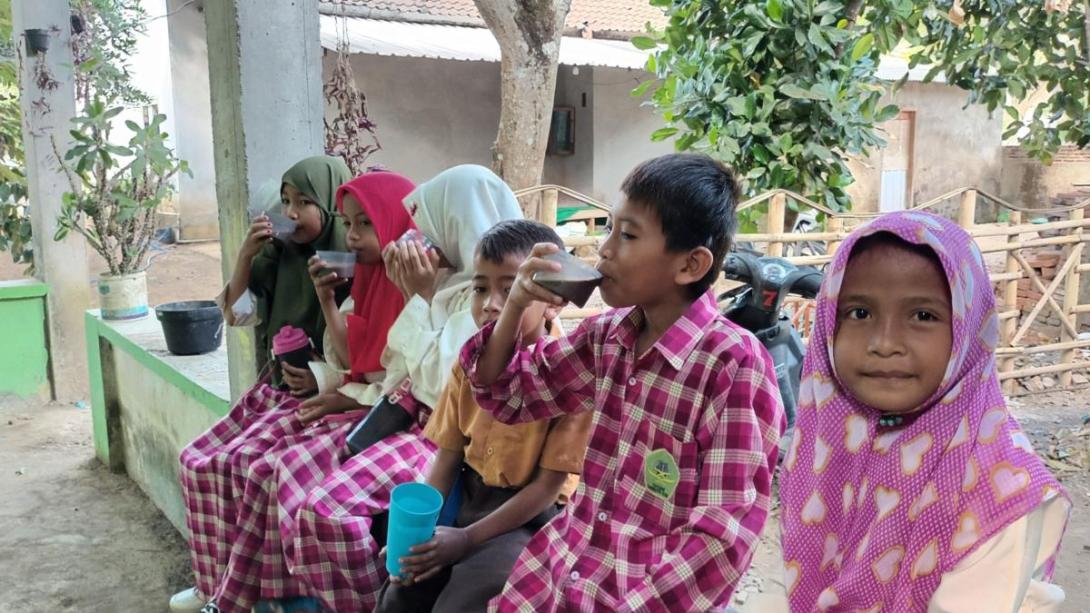
“The biggest reward was seeing students sort their waste without needing instructions. It means their mindset has started to shift.”
The goal of this project is to increase young age children's awareness in managing solid waste properly.
Main Objectives:
- To Develop an extracurricular concept and syllabus about waste management thus the students would gain theoretical knowledge regarding solid waste and its harmful effect to the environment.
- To build teachers' capacity in delivering creative teaching and learning in terms of waste management subjects so the students are happier and have more spirit to attend the class.
- To Develop a waste management system and its standard facilities in school to initiate behavioral change so the students would directly practice the theory which they gain by implementing in their daily school activities.
- To Create a 3R (Reduce, Reuse, Recycle) ecosystem in daily school’s activities. This ecosystem will give the consistent knowledge and habits from their nearest social environment.
- To Establish a waste bank concept in school. It will give the students a comprehensive knowledge about the waste management system and process.
The “School of Earth” project, led by Lalu Irfan Hadimi through Lembaga Generasi Bintang Sejahtera NTB, was launched to address the critical issue of poor waste management awareness among school-aged children in Lombok, Indonesia. The project aimed to instill new environmental behaviors through a creative educational model combining lesson plans, behavioral shaping, and waste infrastructure. It engaged teachers in capacity-building workshops to develop a waste management syllabus, implemented weekly lessons for students, and integrated upstream (reduce and reuse) and downstream (recycle) approaches. The initiative highlighted that waste behavior is often inherited and that early environmental education can break that cycle.
The project successfully implemented various components: teacher training workshops, waste sorting routines, the distribution of reusable lunch containers, and the construction of a “House of Waste” system at school. Although the establishment of a formal waste bank and rooftop garden faced resource and space limitations, students and their families were deeply involved in daily recycling habits. Importantly, the project demonstrated real change: over 338 kg of wastewas diverted from landfills, students began bringing and sorting waste independently, and an average of IDR 90,000/month was earned from waste sales, used to provide students with milk, promoting circular economy and health.

The project had measurable outcomes on student knowledge, behavior, environmental impact, and community engagement. Post-tests revealed that 97% of students could identify and sort waste types, while the carbon savings from recycling efforts were estimated at 0.16 tons of CO₂ eq. The project also promoted inclusion, involving both boys and girls and students from marginalized families. While the teacher capacity-building goal was only partially achieved, Hadimi recognized the need for additional emotional and motivational support for teachers in future projects. The initiative has been shared via local news, Instagram, and is awaiting final video documentation.

